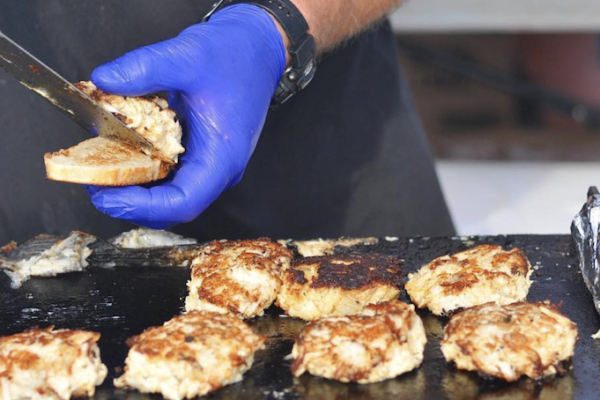COVID 19 Virus Questions
Please refer to the CDC website for the most accurate information regarding health and safety protocol for the coronavirus.
Who are most susceptible to being harmed by the virus?
The CDC website states “COVID-19 is a new disease and there is limited information regarding risk factors for severe disease. Based on currently available information and clinical expertise, older adults and people of any age who have serious underlying medical conditions might be at higher risk for severe illness from COVID-19.” Visit this link on the CDC website to see the full list high risk factors.
How is the Virus spread?
The CDC website states, “COVID-19 is thought to spread mainly through close contact from person-to-person in respiratory droplets from someone who is infected. People who are infected often have symptoms of illness. Some people without symptoms may be able to spread virus. It may be possible that a person can get COVID-19 by touching a surface or object that has the virus on it and then touching their own mouth, nose, or possibly their eyes. This is not thought to be the main way the virus spreads, but we are still learning more about this virus.” Learn more about CDC information on virus spreading here.
What are the best practices to avoid getting the virus?
There are many ways to take extra precaution to reduce your chances of contracting the coronavirus. Visit this link to follow these CDC guidelines to reduce your chances of getting coronavirus.
What are the symptoms of the virus? What should I do if I think I might have the virus?
Visit this CDC link for best practices. According to the CDC website, “People with COVID-19 have had a wide range of symptoms reported – ranging from mild symptoms to severe illness. These symptoms may appear 2-14 days after exposure to the virus:
- Fever
- Cough
- Shortness of breath or difficulty breathing
- Chills
- Repeated shaking with chills
- Muscle pain
- Headache
- Sore throat
- New loss of taste or smell
Where can I get tested to see if I have the virus?
Visit the Virginia Department of Health Website to get the latest announcements on what to do and where to go if you think you have the virus.
The Three Rivers Health District Director’s most recent Press Release quoted: “We must immediately take the following steps:
- Stay at home as much as possible.
- If you go out, practice strict social isolation. Stay 6 feet away from others, wash your hands frequently, sanitize surfaces you touch as best you can.
- If you get sick, stay home, contact your health care provider and follow their advice. Most cases of this disease will self-limit. If you become more ill, especially if you have difficulty breathing, seek health care immediately.”
Can I Get COVID-19 from my house pets or other animals? Should I get my pet tested?
The CDC website states, “At this time, there is no evidence that companion animals, including pets, can spread COVID-19 to people or that they might be a source of infection in the United States. To date, CDC has not received any reports of pets becoming sick with COVID-19 in the United States.
Pets have other types of coronaviruses that can make them sick, like canine and feline coronaviruses. These other coronaviruses cannot infect people and are not related to the current COVID-19 outbreak.”
No. At this time, routine testing of animals for COVID-19 is not recommended.” Read more at this CDC link.
Will wearing a mask help?
Use of Cloth Face Coverings to Help Slow the Spread of COVID-19. It is recommended to wear masks now, if you are unable to find one in store or online, visit this CDC link for how to make your own mask from home.
Where can I find FAQ’s from the CDC website such as: What should I do if I think one of my family members/ friends has the virus? What is the best way to sanitize hands? What is the best way to sanitize surfaces?
There are so many commonly asked questions that you can find in the CDC FAQ’s page here.
FAQ’s for Residents for Local Resources
FAQ #1: What is the difference between quarantine and isolation? What does it mean to practice social distancing?
While both isolation and quarantine refer to methods of preventing the spread of illness, and are often used interchangeably, they do not mean the same thing.
Isolation refers to separating people who are sick from those who are not sick.
Quarantine refers to separating people who are, or may have been, exposed to a pathogen, but are not showing signs of illness. Quarantine is used to make sure individuals are not contagious by minimizing contact with people who were not exposed during an illness’ incubation period-the time it takes for symptoms to emerge.
Social Distancing is the conscious effort to reduce close contact between people, in an effort to reduce transmission of a virus in your community. Social distancing does not mean avoiding all activities. Examples of social distancing include:
- Keeping a distance of six feet between you and another person
- Staggering your work schedule or when you visit places such as the grocery store to hours they are typically not as busy times
- Limiting meetings or and socializing in person and practicing virtual meetings instead
FAQ #2: I have more time on my hands now, where can I volunteer to help during the coronavirus?
More information coming soon. Many residents have asked us what they can do to help during the coronavirus. Not only is this a beautiful reflection of our friendly and generous community, but it’s also motivation for us to compile a list of organizations who are actively seeking volunteers to address the needs during coronavirus, or seeking donations to assist residents directly impacted by the coronavirus. In the meantime, keep looking at our “News from MCVIC” blog with silver-lining stories from your resident neighbors about how they are making a difference during this time.
FAQ #3: I don’t have access to the internet, where can I hook up to Free wifi in Mathews?
Atlantic Broadband has set up 3 temporary hotspots in the county for residents to get access to the internet for free:
1. Hardee’s
2. Playground by the High School
3. Outside of the Mathews Memorial Library
FAQ #4: How do I collect unemployment if I have been out of work due to COVID 19 closures?
You must apply online with the Virginia Employment Commission if you no longer have a job due to the coronavirus pandemic. Apply for unemployment insurance here.
FAQ #5: I can’t afford health insurance, and am currently uninsured what should I do?
You may qualify for free health insurance through the Gloucester-Mathews Care Clinic. This clinic serves the communities of Gloucester and Mathews in quality free healthcare for residents who cannot afford health insurance, and includes primary care including dental and pharmacy prescribed medications.
Visit the Care Clinic’s website for more information.
FAQ #6: What should I do if I can’t pay my mortgage/ electric bill/gas bill/etc…
- Options for payment extension and assistance options with Dominion Energy
- If you are a homeowner struggling to pay your mortgage or rent, please read this article from CNN Business about options to get help.
If you’ve been financially impacted by the coronavirus, you may be able to pause payments on these 8 bills depending on your providers/service: membership and subscriptions, utilities, credit card payments, federal student loans, private student loans, insurance payments, rent or mortgage payments and auto payments.
Can I be evicted if I can’t pay my rent?
The Supreme Court of Virginia has suspended all evictions until April 26, 2020. This date could be extended. Your landlord cannot evict you or ask you to leave your residence for having COVID-19 or while seeking medical assistance.
However, it’s also understandable if you wish to invest in a new home during a crucial time such as this in spite of financial concerns; events have plunged all of us into an indefinite uncertainty, considering which, the ownership of a home may provide some stability and security. In which case, it’s important that you look at your financial situation and consider making use of tools such as a home affordability calculator (available here: https://www.sofi.com/home-affordability-calculator/) to make a prudent decision that does not further hinder your finances.
What do I do if I can’t pay my rent?
If your hours or job has been reduced due to the coronavirus, contact your landlord as soon as you realize you may not be able to pay rent. If you receive late rent notices (visit https://www.american-apartment-owners-association.org/property-management/landlord-forms/notice-to-pay-rent-or-quit/ to understand what that is), ask whether partial payments will be accepted until the full rent is paid. Write out a payment plan that reflects what you can afford. If your hours have been completely cut and you do not have a job, consider applying for unemployment insurance. See more information above at FAQ #4.
FAQ #7: What should I do if I don’t have money for food/medicines ? Where can I get a free meal?
Contact Mathews County Social Services for resources and assistance and to learn about SNAP benefits. Helping the Homeless mobile bus also visits Mathews County and feeds a hot meal to anyone who needs it. They come regularly to Mathews on Saturdays at 7:30pm outside of the Mathews Laundromat.
FAQ #8: Is it okay to take walks and exercise outside?
Yes! It is both good for mind and body to go on walks, runs, hikes, or get exercise when you can. With that being said, use common sense when it comes to gathering outside. There are plenty of non-crowded beaches, back roads, and long driveways for you to take this opportunity to explore while you have more free time. Exercise, meditation, sleep and stress management are all components to make you a healthier human. It is an important component to boosting your immune system and exercising your lungs. Here are CDC’s recommendations on parks and recreational facilities.
FAQ #9: What restaurants are offering take out or delivery in Mathews?
See our list of restaurants that are offering curbside and delivery services during
COVID-19.
FAQ #10: I feel so alone being isolated, what should I do?
There is no clear answer for everyone, you are uniquely different from everyone around you. So that’s why it’s important to practice hobbies and habits that are beneficial to your mental, physical and emotional state. Use this opportunity to take up a new hobby, get into the many benefits of starting a garden, craft, spring clean, paint something, de-clutter, exercise, eat healthier, binge a Netflix show, make check lists, spend more time with members in your household, walk the dog, practice yoga and deep breathing, or try a new recipe? If you are home alone, call a friend or family member every day to help you feel connected.
We’ve seen people take up face mask making, train for a half-marathon, pick up trash on the roads in their neighborhoods, and volunteer for an organization helping residents during coronavirus. (We are working on this list for you!) Take a break from screen time and try not to over indulge on updates about COVID-19.
FAQ #11: What is the safest way for me to buy groceries?
On April 22nd, AARP put out a helpful article on how to grocery show with precaution during the coronavirus. Their helpful suggestions including planning for your trip: make a list in advance and try to avoid peak-hours. Wear cloth masks and bring sanitation wipes to wipe down your cart, keep a distance from others, avoid touching surfaces unless necessary and use a credit card at checkout. When you get home, wash your hands immediately and handle your groceries as you normally would including washing off fruits and veggies. Make hygiene a habit and maybe even try ordering your groceries to pick up to-go offered by most Food Lions and Walmarts. Read more of their article for helpful tricks.
FAQ #12: What does the governor’s act say?
Virginia Governor Ralph Northam has made several Executive Orders to safeguard Virginians during the coronavirus. It is not within our scope to breakdown all of these orders, as they are thorough and could be changed. Please visit the state website to see a history of EO’s and read through the guidelines of the orders for different sectors of the economy and society.
The temporary Stay at Home Orders can be found here.
FAQ #13: What does the CARES act say?
The CARES Act stands for Coronavirus, Aid, Relief & Economic Security to provide fast and direct economic assistance for American workers and families, small businesses, and preserves jobs for American industries. The CARES Act was passed by Congress with overwhelming, bipartisan support and signed into law by President Trump on March 27th, 2020. Funding allocated to assist these sectors of the economy is quickly getting applied for by Americans, and you should apply soon if you need assistance with your business, employees, and family. Find more information on the CARES Act here.
For Families: “The CARES Act provides for Economic Impact Payments to American households of up to $1,200 per adult for individuals whose income was less than $99,000 ( or $198,000 for joint filers) and $500 per child under 17 years old – or up to $3,400 for a family of four.” More information here. You can check on the status of your stimulus payment here.
For Small Businesses: The Paycheck Protection Program is providing small businesses with the resources they need to maintain their payroll, hire back employees who may have been laid off, and cover applicable overhead.
The CARES Act is also creating measures to assist state and local governments and preserve jobs and industries.
FAQ #14: Where can I find information about COVID-19 as it specifically relates to Mathews County?
Find regular updates and announcements from Mathews County Government here. Here they post information on the local level and trickled down from the state level. You can also follow them on Facebook to see their announcements so you never miss a listing.
The staff of Mathews County are regularly sharing important announcements and doing their best to stay on top of the coronavirus for the county. We thank them for their hard work and continued presence during this time!
FAQ #15: What are Phase I Reopening Requirements for Virginia?
Phase I of reopening in Virginia started on Friday, May 15, and many different businesses are navigating the protocols required for serving the public. You can find the Phase I requirements at this link here.






